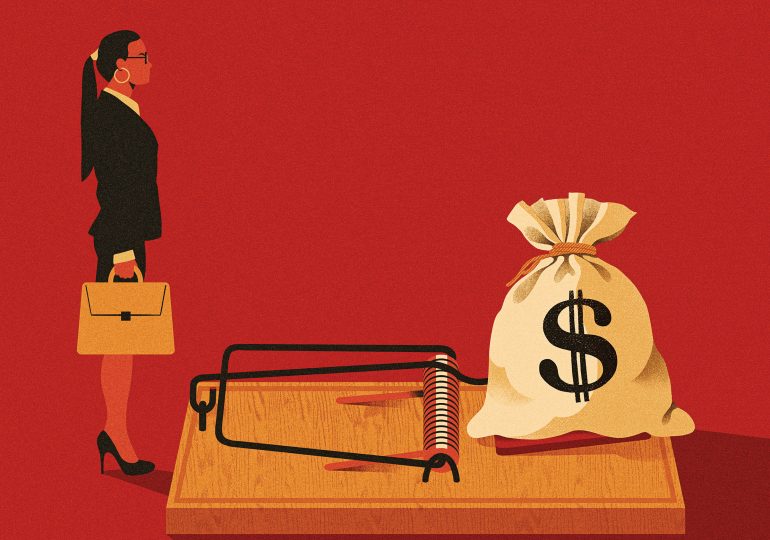Capitalism is a fetish. And when I say fetish, I mean the actual definition of the word: an obsessive preoccupation or attachment; a fixation.
The word fetish is derived from the Latin factitius: imitated, opposed to the natural. And capitalism is unnatural—or human-made. Its power has been blown out of proportion precisely through the obsession, devotion, fixation through which it is regarded. But if we rub our eyes, we can see more clearly. And we see a mess. The planet is burning, drowning, suffocating. Living standards fall continuously, millennials are screwed (never mind the following generations). Meanwhile, the five richest men in the world doubled their wealth from 2020 to 2024.
[time-brightcove not-tgx=”true”]
And yet, any cries for change to the system, even just for the tiniest wealth tax, remain frowned upon by those who benefit the most from capitalism. There is a blindness that comes with privilege that makes you unable to see the structures around. And that makes you unable to criticize a rotten system.
For the few rich people like me, capitalism still seems beneficial, but it has always been a system of violence and deprivation for the many nonrich. I was born into a family worth billions and inherited my first multimillion-dollar fortune at just 30. Several financial advisers, whose only job is to manage my family’s wealth, appeared and offered to take care of my share. It was odd. They seemed to have one belief: protect and grow. Wealth must grow—there’s never enough. And it may consume everything to do so.
When I asked how much is enough, so I could redistribute excess wealth, they didn’t understand, saying they would keep growing it. They wouldn’t explain how, just that assets were good. I came to understand I was to buy property, mortgages, stocks, and shares, and a magical market would increase their value, effectively pouring money into my bank account.
But on the other side of the equation were ordinary people, whose hard-earned money was being directed to me, whatever I did. They would work in my businesses, where their labor generates “my” profit, and then they would spend their wages on rent or mortgages they owe me, and on products from my company. That’s the power of this system.
I wouldn’t have it, and instead decided to give away as much of my wealth as possible. At first, I made the decisions myself, since it was my money. But that felt wrong. So much power, again, in my hands, and so many people affected by my decisions who didn’t get a say. So I asked around and met like-minded people—even other wealth holders keen to redistribute. And they taught me to not fall into the trap of believing that I am indispensable in any of this. It’s true, I have no cape, no wand, no Batmobile, and I can’t fly. No superpower, right?
Sort of. The power I got through my wealth in capitalism was easily broken. It just needed a democratic process in which power is shared and people get to participate in the decision-making process that affects them. And it needed to be done publicly to show that we did not have to reproduce the same power dynamics; we could decide differently.
Some philanthropic leaders insist that giving in this way can strengthen “democratic capitalism”—what an oxymoron. But there it is again, the fetishization of capitalism. It’s a common mistake to believe capitalism equals democracy. But I understand that few things are as hard as giving up a belief to which you have previously attached everything: your livelihood, status, merit, self-worth, and understanding of the world around you. Nevertheless, it is time to let go. As Supreme Court Justice Louis D. Brandeis once said, “We can have democracy in this country or we can have great wealth concentrated in the hands of a few, but we cannot have both.”
The common understanding of a fetish is often in a sexual context. But sexual fetishes rely on clear boundaries and practices of consent. So for all those capitalism fetishists out there: Get a harness. A few I like include regulation, redistribution, and reparation. Establishing a new system will take time, structural change, and enormous effort. Democracy offers ordinary people the power to shape the system they’re in. We can change the structures, regulate capitalism to reduce it back to a systemic deviance practiced only by consenting adults, and redemocratize access to wealth, land, and power.
Leave a comment








